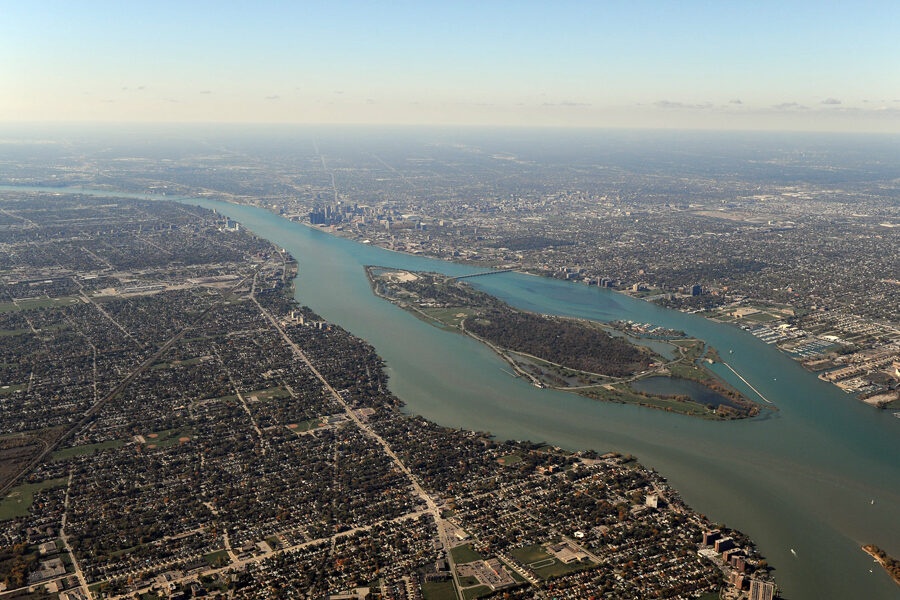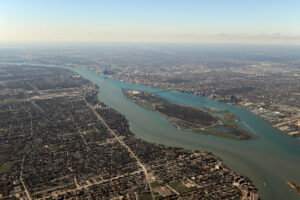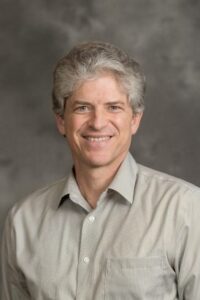Source: Graham Sustainability Institute

The Detroit River. Credit: U.S. Army Corps of Engineers.

The Detroit River. Credit: U.S. Army Corps of Engineers.
The Detroit River Story Lab was one of seven University of Michigan projects to receive funding from the Graham Sustainability Institute’s Carbon Neutrality Acceleration Program. Each project has dramatic potential to help reduce net carbon emissions.
In this funding round, seven 1-2 year projects totaling $1.75 million were chosen from among 37 proposed projects involving 105 U-M faculty and researchers. The projects selected address energy storage, carbon capture and sequestration, public opinion, behavior and equity.
“We are grateful to the donors and thrilled to be in a position to support faculty across U-M as they blaze much-needed trails to carbon neutrality,” said Jennifer Haverkamp, Graham Family Director of the Graham Sustainability Institute and co-chair of the President’s Commission on Carbon Neutrality. “We expect these projects will have a major impact—both on future research and in real-world applications.”

David Porter
The Detroit River Story Lab was awarded $270,000, and the project team includes: David Porter, Comparative Literature/English Language & Literature (PI); María Arquero de Alarcón, Architecture & Urban Planning; Rebecca Hardin, SEAS; Melissa Duhaime, Ecology & Evolutionary Biology; and Kristin Hass, American Culture.
Home to oil refineries, steel factories, power plants, industrial agriculture, and carbon-intensive transportation networks, the Detroit River Watershed is one of the nation’s most deeply and visibly implicated in the troubling legacy of the carbon economy. Riverside communities have displayed remarkable resilience through the myriad trials of the past 75 years, and this project aims to partner with these communities as they continue reshaping the shared narratives that will lay the groundwork for a sustainable post-carbon future for the region.
Local community groups have begun actively contesting the dominant narratives that have long defined the river’s value in the terms of an extractive economy deeply intertwined with racial exploitation and environmental degradation. Working alongside these community partners, the research team will leverage the powerful narrative channels of education, nonprofit journalism, and regional public history to resource the creation and elevation of alternative frameworks and learning tools for reconnecting local communities in forward-thinking ways with their most important natural resource.
Early stages of the project will focus on excavating, through interviews and archival research, the many-layered stories that constitute communities’ collective understanding of the Detroit River’s place in their lives. The research process will include exploratory workshops, data gathering on local carbon emissions and reduction efforts, cartographic site inventories, partnership building among faculty and community stakeholders, and the co-production, with community partners, of impactful place-making, story-shaping resources and events for the benefit of broad regional audiences.
For more information on other projects, continue reading.

